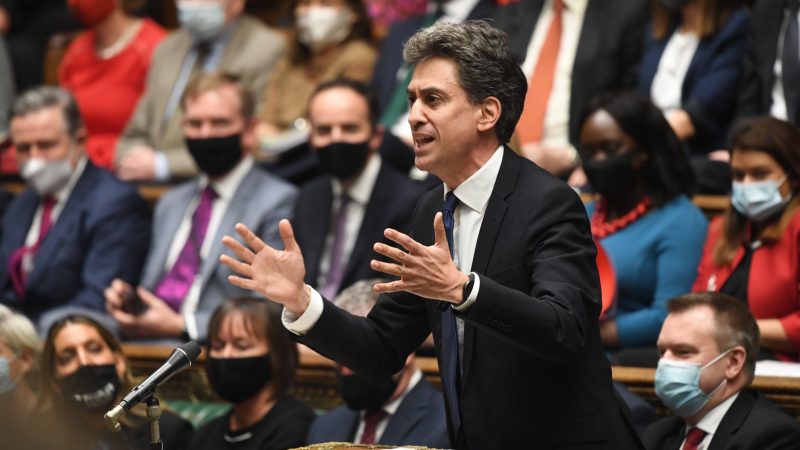
Ed Miliband has said that the Labour Party is “continuing to look at common ownership across different areas, including energy”.
Speaking at the Liverpool book launch of Owning the Future: Power and Property in an Age of Crisis in Liverpool this afternoon, the Shadow Climate and Net Zero Secretary told attendees that “there is an openness to thinking about all of these issues” in Keir Starmer’s Labour Party.
Miliband highlighted the announcement earlier today by Shadow Transport Secretary Louise Haigh that Labour in government would renationalise Britain’s railways if the party were to win the next general election.
“Keir Starmer and Rachel [Reeves] have been completely right to emphasise that it’s got to be pragmatic, it’s got to be value for money, it’s got to make financial sense, and what Lou has done is make that case, and we’ve committed to what she’s committed to today,” he said.
Miliband’s comments followed the Shadow Chancellor’s announcement of an £8bn “national wealth fund” for green infrastructure investment, which the party has said will ensure the state retains a share of the assets in which it invests.
Miliband stressed that Labour would be willing to use the fund to take equity stakes in companies, adding: “It is about creating jobs here. I am very struck that if you look at the global race that there is on green energy, which Britain is currently losing, the state being an actor to invest in the future is really really important.”
“We should think creatively about how the wealth fund thinks for example about conditionality when it comes to governance and the role of workers,” Miliband argued.
“One of the underreported things of the Biden administration is the way in which in their inflation reduction action and other things they are doing lots of conditionality when it comes to contracts for green energy.”
Reeves said during an interview earlier this year that the nationalisation “just doesn’t stack up against our fiscal rules”. A party spokesperson later clarified that Labour is “pragmatic about public ownership as long as it sits within our fiscal rules” and that “there is a positive role for rail in public ownership”.
The party published a report – Stronger Together: A Fairer, Greener Future – on Sunday following a policy review led by party chair Anneliese Dodds, which stated that “Labour is pragmatic about public ownership where privatisation is not working”.
“For too long, Conservative governments have been ideologically committed to privatisation regardless of the consequences for consumers and employment standards. Our aim will always be to consider how we can improve these services to work better for those who use them and improve conditions for those who work in them,” it added.
Ahead of conference, Labour for a Green New Deal’s motion – which called for “democratic public ownership models across the economy, led by national public ownership of key sectors” – was ruled out of order by the conference arrangement committee (CAC) because it “covers more than one topic”.
Delegates passed a motion proposed by Unite this afternoon, however, that called for a “new political and societal consensus” expressing the need for “taking back control of essential services and utilities through new models of democratic and efficient public ownership”.
Labour is not bound by policy passed at its annual conference – even if motions are passed unanimously. It is Labour’s national policy forum (NPF) and ‘Clause V’ meeting before an election that decides which parts of the party programme are included in the manifesto.




More from LabourList
‘What Batley and Spen taught me about standing up to divisive politics’
‘Security in the 21st century means more than just defence’
‘Better the devil you know’: what Gorton and Denton voters say about by-election